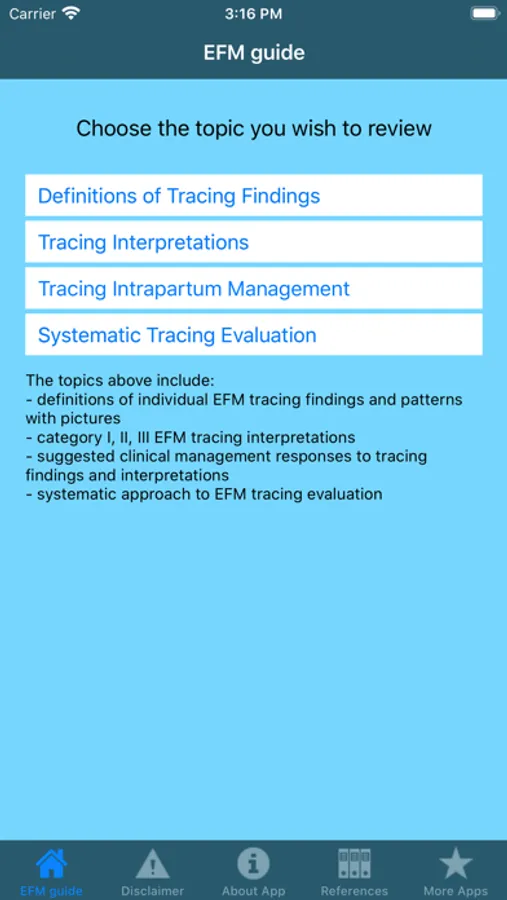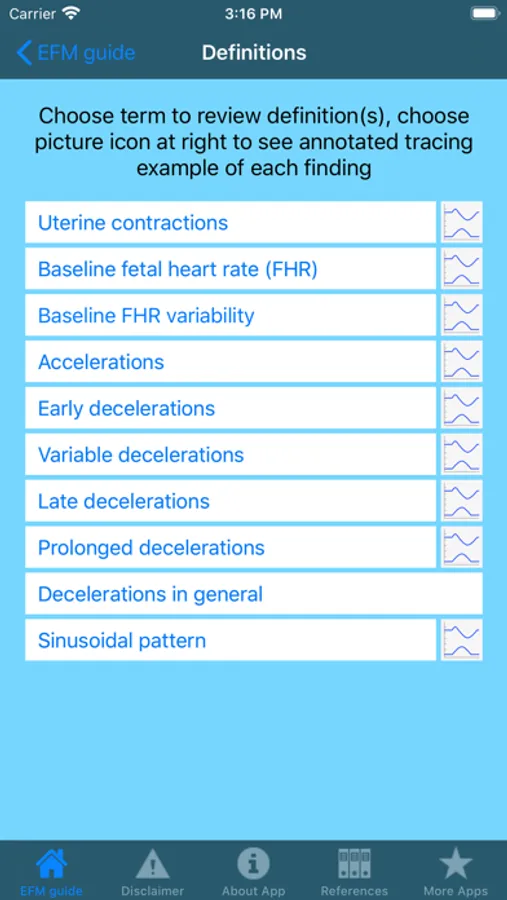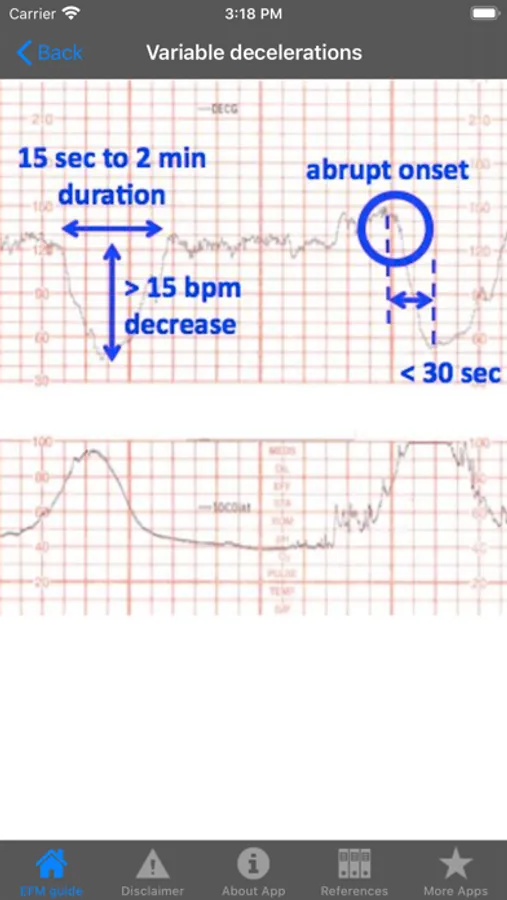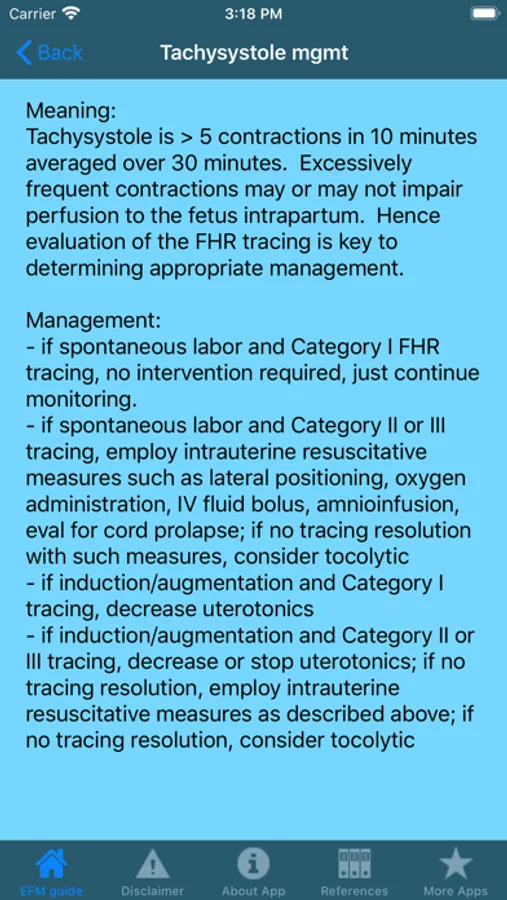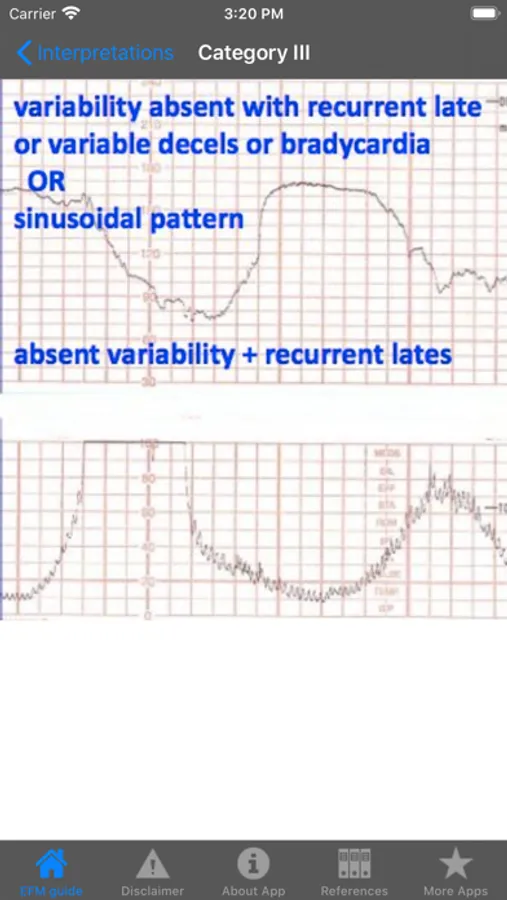AppRecs review analysis
AppRecs rating 4.5. Trustworthiness 80 out of 100. Review manipulation risk 26 out of 100. Based on a review sample analyzed.
★★★★☆
4.5
AppRecs Rating
Ratings breakdown
5 star
50%
4 star
0%
3 star
0%
2 star
0%
1 star
50%
What to know
✓
Low review manipulation risk
26% review manipulation risk
✓
Credible reviews
80% trustworthiness score from analyzed reviews
About EFM Guide
EFM Guide is a non-commercial quick-reference app for medical trainees (not the lay public). It puts at your fingertips the approach, nomenclature, and management recommendations from the guidelines on electronic fetal monitoring (EFM) from 2008, 2009, and 2010. Each EFM finding and tracing is defined and explained with pictures. Management responses for findings and category interpretations are presented. And the systematic approach to EFM evaluation is reviewed. This app is written and intended for resident & student physician trainees, for nursing and midwifery trainees, and for practicing clinicians. It answers questions such as the following:
- what is moderate baseline fetal heart rate variability?
- what are the differences between an early, variable, and late deceleration?
- what qualifies as tachysystole? and how can I manage tachysystole?
- if my patient is 31 weeks gestation, what counts as an acceleration?
- what qualifies as category I, II, and III tracings, and what does each suggest clinically?
- what are the elements of systematic EFM tracing evaluation?
- how may I respond to a category II tracing?
- what does sinusoidal pattern look like?
This guide tries to faithfully present the NICHD material for quick effective reference and review, it does not present the judgment of the app's authors. As educators and clinicians, we are interested in feedback and we would be grateful for guidance on improving the tool.
- what is moderate baseline fetal heart rate variability?
- what are the differences between an early, variable, and late deceleration?
- what qualifies as tachysystole? and how can I manage tachysystole?
- if my patient is 31 weeks gestation, what counts as an acceleration?
- what qualifies as category I, II, and III tracings, and what does each suggest clinically?
- what are the elements of systematic EFM tracing evaluation?
- how may I respond to a category II tracing?
- what does sinusoidal pattern look like?
This guide tries to faithfully present the NICHD material for quick effective reference and review, it does not present the judgment of the app's authors. As educators and clinicians, we are interested in feedback and we would be grateful for guidance on improving the tool.
